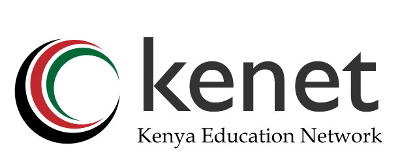You are here
Digital Inclusion and how to leverage KENET high-speed infrastructure for research in rural/remote areas
Digital inclusion is now a commonly used term by the UN bodies that focus on Global Internet Connectivity (See the UN Global Connectivity Report of 2022) and one of the challenges addressed Kenya’s National Broadband Strategy 2018-2023. It is also the focus of many last mile and last 100m connectivity initiative and project proposals in Kenya (e.g, the Kenya Digital Economy Acceleration Project or KDEAP to be funded by the World Bank has a $90 component for last mile connectivity).
KENET defines digital exclusion as lack of access to affordable high-speed Internet by end users. High-speed is a minimum of 1 Mb/s download speed per end-user or 100 Mb/s per 100 users who are online at the same time. Digital inclusion means adequate campus or research station Wi-Fi coverage to support high-speed Internet for the end-users - end-users should not have to use Mobile data bundles while on campus or their research stations. It also means end-users have appropriate devices to access Internet (e.g., a laptop or tablets for researchers and faculty) and all ICT equipment have stable power. It also assumes users have acquired the necessary digital skills.
The current mission of KENET is to “facilitate digital transformation and digital inclusion for member institutions”. In the last two months, KENET has been implementing last mile connectivity for rural research stations for Kenya Forestry Research Institute (KEFRI) and Mpala Research Centre 45KM off Nanyuki town. This is the first time we are connecting KEFRI. In December 2022, KEFRI awarded KENET a large tender to connect 18 of their research stations located in forests in different parts Kenya through a competitive open tender process.
Most of the stations were connected at low speeds of just 5 Mb/s, KENET has now setup fixed high-speed Internet infrastructure to all of the stations. The research stations that were close to KENET nodes (e.g., in Nyeri or Kitui) have been connected through high-speed fixed radio at speeds of up to 100 Mb/s. All the links have been upgraded to achieve a minimum 10 Mb/s. We have constructed five radio masts in the different KEFRI research stations to install fixed-radio links (e.g., Kitui, Nyeri, Turbo, Kibwezi). The masts and the links shall be available to other researchers in the KENET community who need to setup remote data collection using Internet of Things equipment (we can setup LoRaWAN for researchers, if necessary, simply send us a request).
In research stations with limited Wi-Fi coverage, we shall supply a few Wi-Fi access points to improve the Internet experience of the researchers. We shall also activate eduroam SSID at all the 18 research stations. We are excited about the digital inclusion solutions we have implemented for KEFRI. Mpala Research Centre is in isolated areas of Nanyuki (60 KM from Nanyuki ton by road). It is part of Princeton University in the US and support graduate research for Princeton University students working in area of Wildlife and environment. The request to upgrade their last mile connectivity to 100 Mb/s was received through KENET partners at the University of Oregon (NSRC, the partner who often donate network equipment). We are building a dedicated last mile high-capacity two-hop radio link and will also extend eduroam Wi-Fi for the convenience of the visiting researchers who are already on eduroam. Similarly, the radio mast and link is available for other researchers in Kenyan universities or research institutes, and we can setup LoRaWAN for any researchers who need to collect data remotely.
There are many other ways KENET provides high-speed connectivity for researchers in remote and rural stations. Students, faculty and researchers can leverage on this infrastructure held in trust by KENET (i.e,., developed and owned by the KENET community) to advance their research. In case you need to setup research experiments using masts or links setup in those rural areas or forests, kindly get in touch with KENET support (support@kenet.or.ke).
